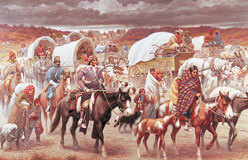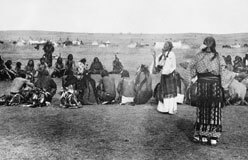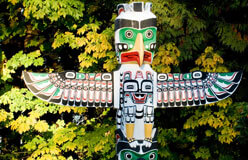Suppose—just suppose—that beings from outer space have landed in your community.
At first there are only a few of them, and they behave rather decently as they seek your help so they can survive in this strange new environment. Soon, however, more and more of them arrive. They begin to act as if they have every right to do whatever they please. They tell you that their way of living is better than yours and that you’d better learn to like it because they are taking over your land. How would you feel?
This, of course, is very much like what happened to Native Americans when Europeans arrived on their continent. The first small bands of European explorers and settlers relied on their Native hosts for survival. As time went on, however, more and more Europeans arrived, greedy for land and resources. Their diseases and their weapons soon wiped out large numbers of the Native population. Eventually, the newcomers outnumbered the Natives and placed them under their control.
For about the first 200 years of United States history, the government kept changing its policy toward Native Americans. At first, it signed friendly treaties. Then it forced Native Americans to leave their lands and live on reservations. Then it broke those reservations into individual portions. All these policies were designed to take land away from Native Americans. In the last 50 years, however, the government has begun to admit the unfairness of these policies and work with Native Americans to try to right the wrongs of the past. Here’s a brief look at Native/newcomer relations.








